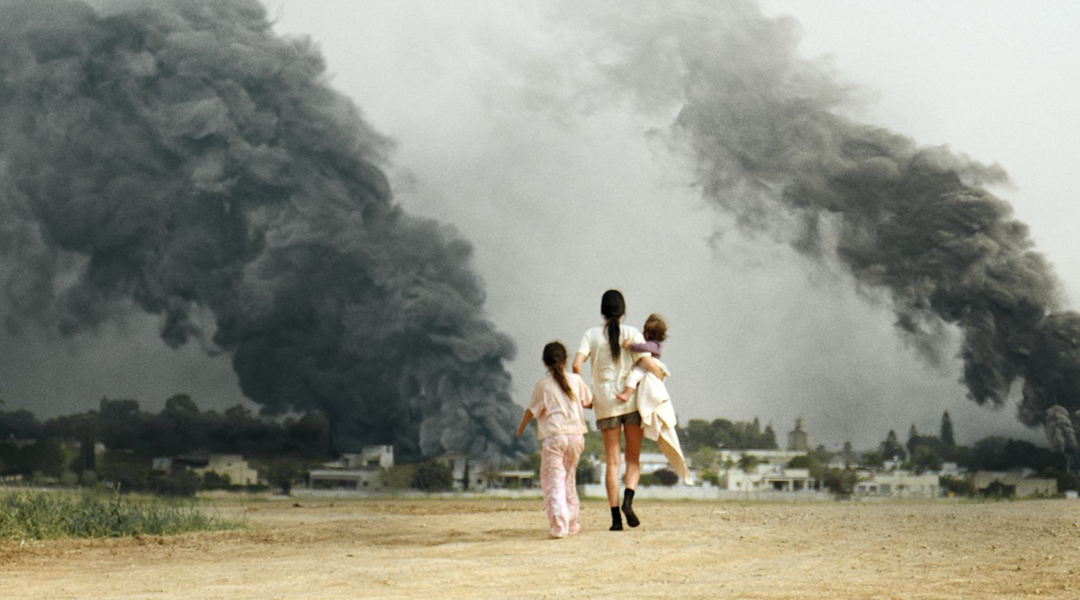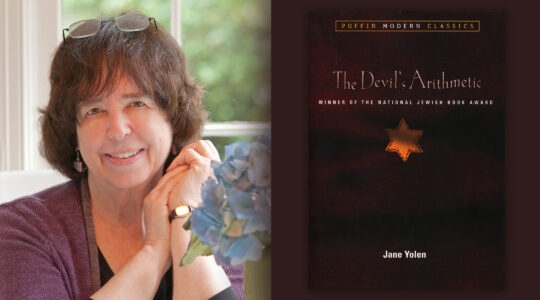Two years after the Hamas attacks on Israel, the tragedy of Oct. 7 has become its own cinematic sub-genre. Filmmakers have rushed to bear witness, survivors have taken up cameras, and streaming platforms are now filled with documentaries and dramatizations that revisit, reimagine, and attempt to process the day’s horrors.
From raw documentaries of the Nova music festival to scripted miniseries debuting this month, these works show how Israelis, and Jews around the world, are still grappling with a single day that reshaped their lives.
The desert rave that became the site of mass murder has inspired a cluster of films, each offering a different register of witness.
“We Will Dance Again” is a documentary that offers a chronological, minute-by-minute account of the Oct. 7, 2023, Hamas attack on the Supernova Music Festival in Israel. The film is constructed primarily through the first-hand testimonies of over a dozen survivors, interweaving their accounts with footage they recorded on their cell phones and video recovered from the cameras of the attackers. The documentary is available to stream Paramount+.
“#Nova,” now on Prime Video, adds new layers of forensic detail by synchronizing video captured by the victims on their personal cell phones with footage recovered from Hamas body-worn cameras. “Supernova: The Music Festival Massacre,” on Apple TV and YouTube, stitches together real-time footage and interviews to convey the disorienting chaos of the first hours.
A more intimate companion piece, “Tattooed for Life,” which played across many film festivals but is not currently streaming, follows tattoo artist and survivor Liraz Uliel as she memorializes fellow festival-goers through a shared fractal tattoo design, an act of mourning turned into community ritual.
Other filmmakers have turned their attention to what happened in the homes, fields and kibbutzim of southern Israel.
The PBS documentary “After October 7: A Personal Journey to Kfar Aza” offers a close look at one of the hardest-hit communities, combining news footage with deeply personal reflections on grief, displacement and rebuilding.
Currently in theaters, “The Road Between Us: The Ultimate Rescue” chronicles retired general Noam Tibon’s desperate drive south to save his son, journalist Amir Tibon, and his family. Blending firsthand testimony with security footage of real-time chaos, the film recounts the former general’s 10-hour, high-stakes mission across a country under siege to rescue his loved ones from their home in Kibbutz Nahal Oz. The film won the People’s Choice Award when it premiered at the Toronto International Film Festival after some turmoil.
Two scripted productions expand these same themes. “Red Alert” (known in Hebrew as “First Light”) is a four-part miniseries that dramatizes five intertwined true stories of civilians, police, and first responders, and is executive-produced by Lawrence Bender, of “Pulp Fiction” fame. The series weaves these chaotic narratives together in a race-against-time format and premieres on Paramount+ on Oct. 7, making it one of two major scripted series to debut on the second anniversary of the attack.
The second series, “One Day in October,” an anthology series based on seven distinct personal stories, will debut on HBO Max on Oct. 7, with all seven episodes available for the U.S. audience.
Many documentaries are meant as a bulwark against denial.
“Bearing Witness to the October 7th Massacre,” a 47-minute film, compiled by the Israeli military, compiles raw footage from multiple sources, including Hamas body-cam recordings, dash cams, CCTV, and victims’ phone videos, to create a chronological record of the atrocities. Due to its graphic nature, the film has not been released to the general public and is only shown in private, invitation-only screenings for policymakers, journalists, diplomats, and community leaders around the world.
A documentary created by Sheryl Sandberg, “Screams before Silence,” address the sexual violence and gender-based atrocities perpetrated by Hamas during the attacks. It is intended to break what critics have described as a moral silence on these war crimes and is streaming on YouTube.
“The Killing Roads” does narrow its focus to the attacks on Route 232 and Highway 34, which were the main arteries where Hamas gunmen ambushed and killed approximately 250 people fleeing the Nova festival and surrounding communities. The film has been released for free viewing on platforms like YouTube and a dedicated website to combat denial of the massacre.
The PBS documentary “October 7th: Through Their Eyes” is focused on a network of Israeli volunteer archivists who immediately set out to preserve the large volume of digital evidence, including social media posts, videos, and messages, from survivors and victims before the content could be deleted or lost. The goal of their project, October7.org, is to create a widely accessible, permanent database of first-hand testimonies.
Several recent works focus on the ordeal of captivity and survival.
“The Children of October 7,” streaming on Paramount+ and hosted by activist Montana Tucker, profiles eight young survivors (ages 11-17) who share harrowing, unscripted testimonies of narrowly escaping death, witnessing the murder of family members, or enduring captivity, and highlights their resilience in the face of unspeakable loss.
Meanwhile, the short documentary “A Letter to David” sees the filmmaker revisit his onetime actor and friend, David Cunio, who remains held in Gaza along with his brother, Ariel Cunio, after being kidnapped from Kibbutz Nir Oz. The film is a collage of family footage and archival material that functions as a cinematic plea for his return.
As the shockwaves of Oct. 7 spread around the world, another crop of films has examined how the attacks reverberated across the Jewish Diaspora and within movements for and against Israel’s war.
The documentary “October 8” (previously titled “October H8te”) captures the anti-Israel protests that erupted across U.S. cities and college campuses in the days and weeks following the attack. It is streaming on Apple TV and Amazon. “The New Jew: Days of War” follows Israeli comedian Guri Alfi as he travels across North America to explore Jewish identity and division in the aftermath.
“Torn: The Israel-Palestine Poster War on NYC Streets” documents the dueling “Kidnapped” and “Free Gaza” posters that turned city lampposts into symbolic battlefields. And “There Is Another Way” portrays the Israeli–Palestinian group Combatants for Peace, whose members struggle to uphold their belief in nonviolence even as both societies harden in grief.
JTA has documented Jewish history in real-time for over a century. Keep our journalism strong by joining us in supporting independent, award-winning reporting.





